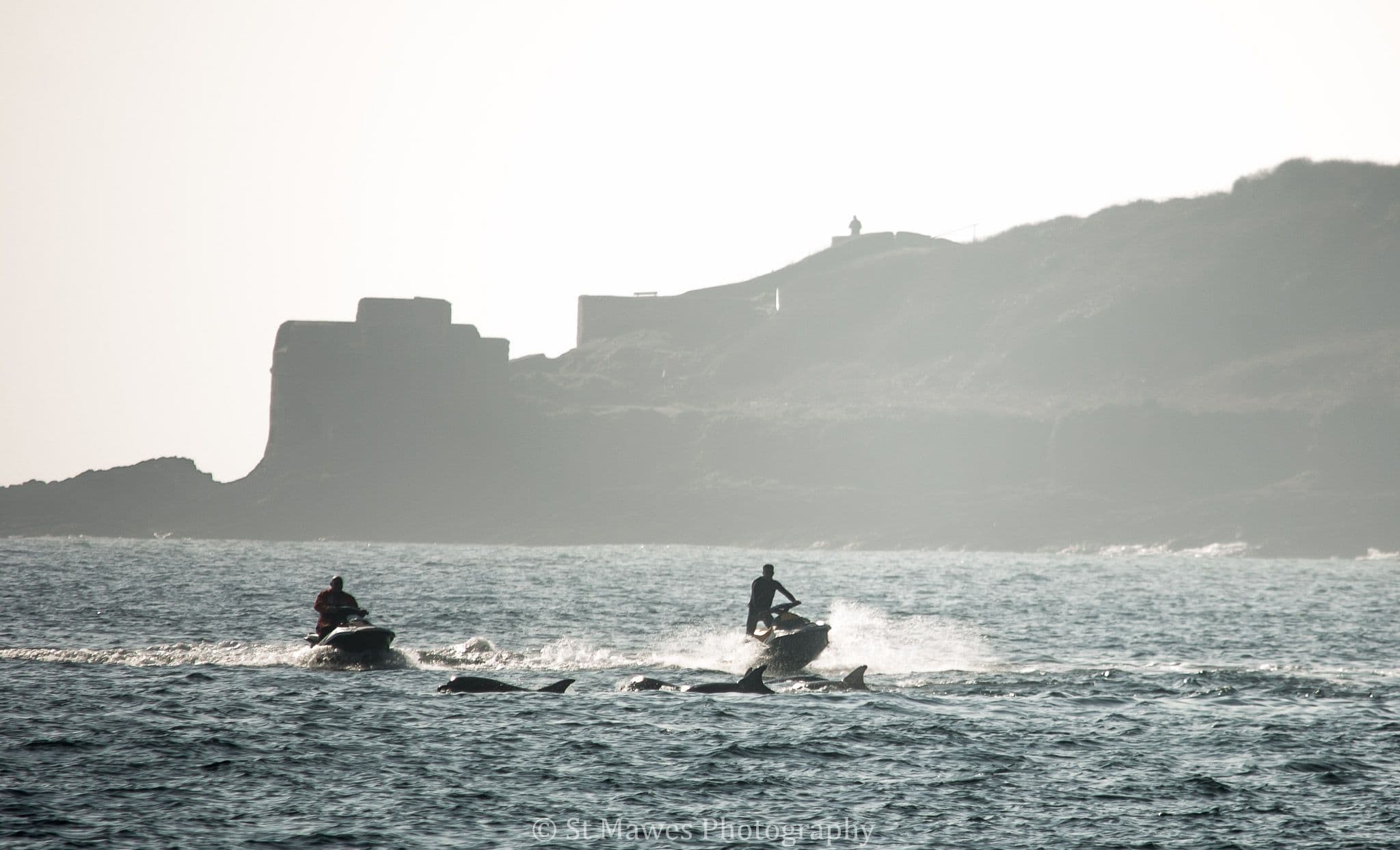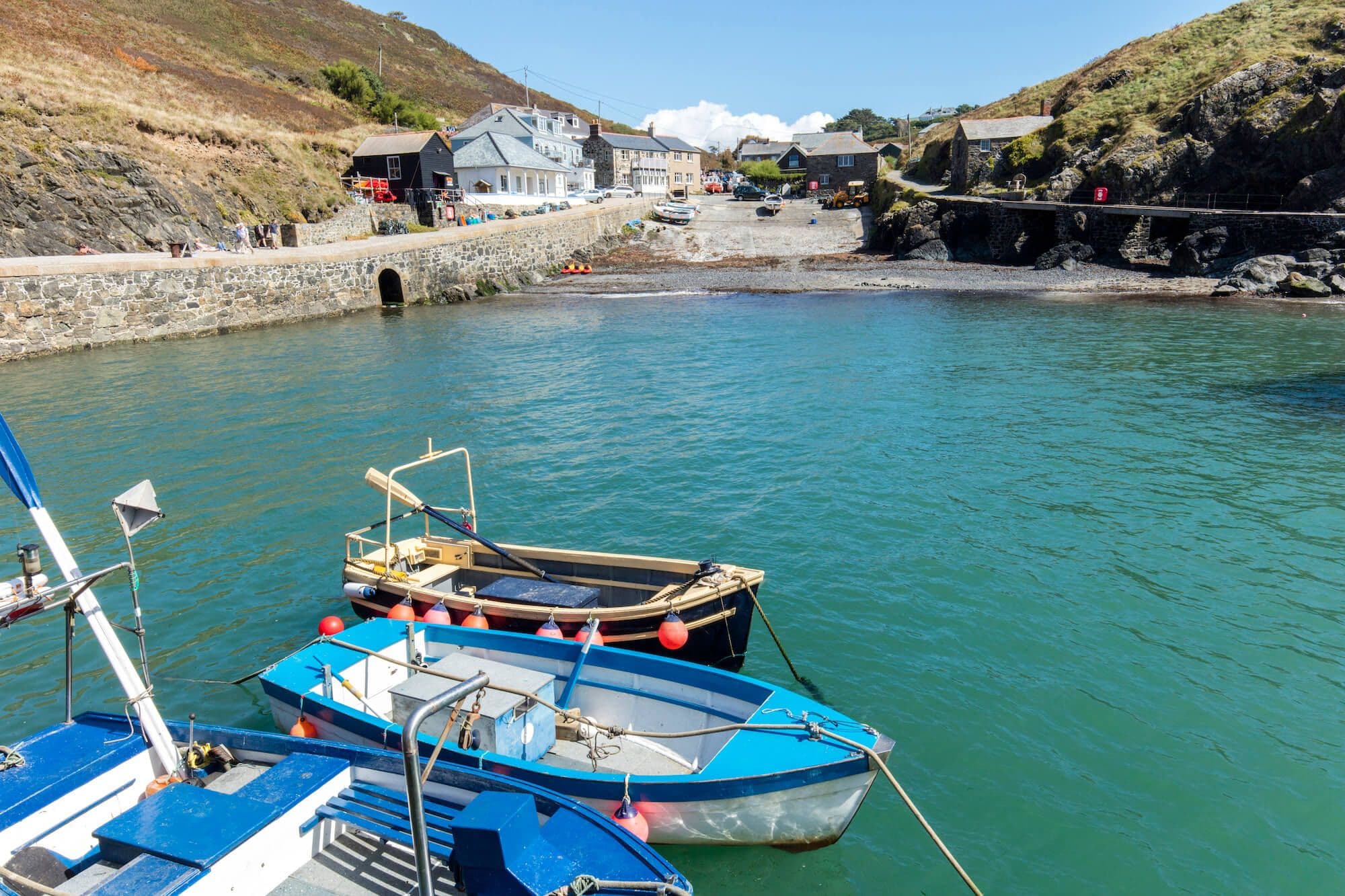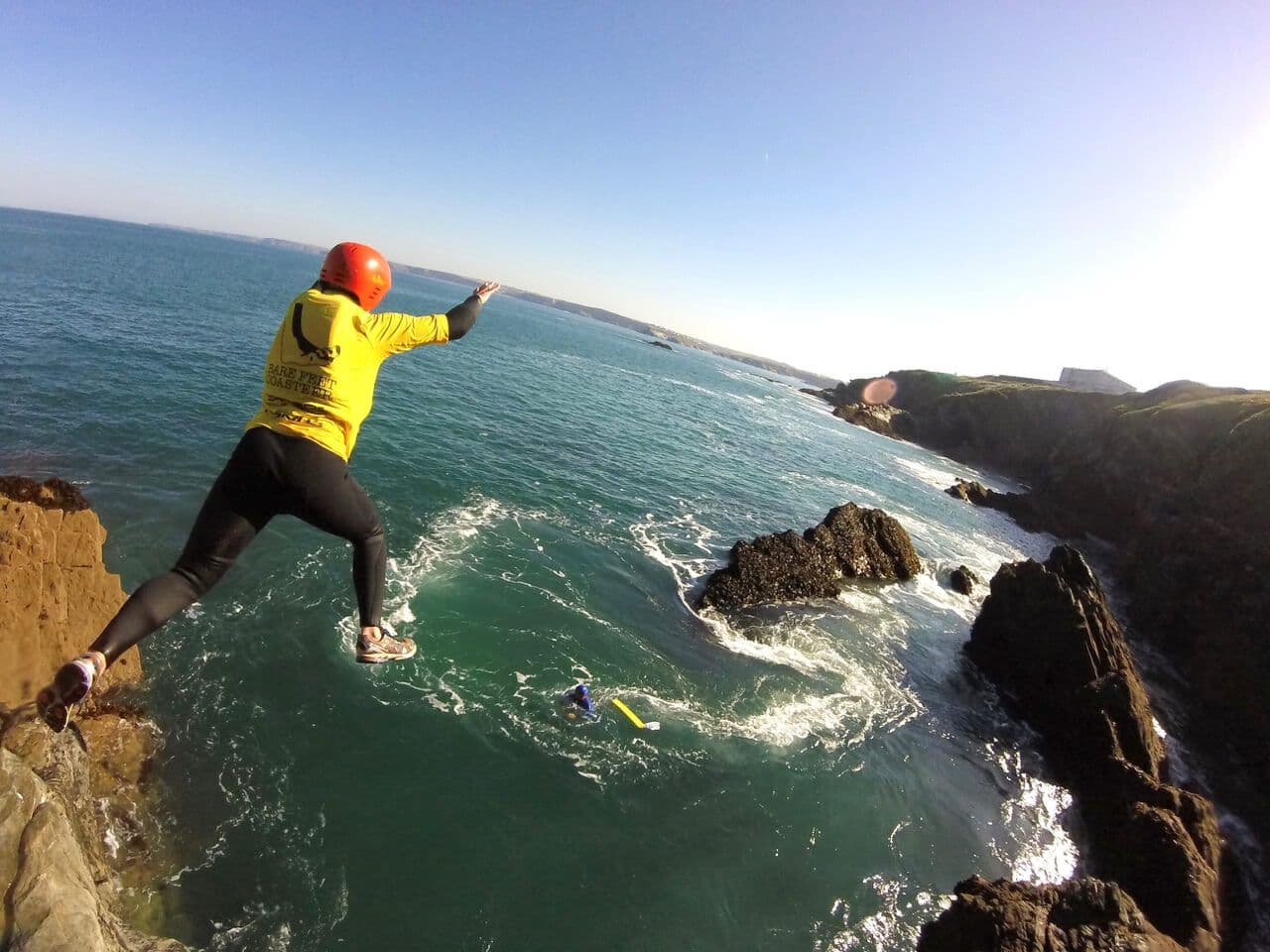Follow the Marine and Coastal Code
With its lengthy coastline and cerulean seas, Cornwall is one of the UK’s top destinations for water-based activities. That goes for wildlife as much as for humans, which is why Cornwall Wildlife Trust is asking visitors to follow the Marine and Coastal Code when participating in pursuits such as coasteering, kayaking or even a simple hike on the South West Coast Path.
“Disturbance is one of the top threats to marine and coastal wildlife,” says marine conservation officer Abby Crosby. “We are trying to engage with private and commercial water users, encouraging them to consider their actions in, on and by the sea and ensure they enjoy the water with minimal disturbance to marine wildlife, from basking sharks and dolphins to nesting seabirds.”
The above photograph shows jet-skiers approaching dolphins near Falmouth.
The trust is one of several partners, from governing bodies to professional organisations and charities, that have come together to form a voluntary collaboration: the Cornwall Marine and Coastal Code Group, whose members include Natural England, the RSPB, the National Trust, Cornwall Council, Devon and Cornwall Constabulary, Cornwall Seal Group Research Trust and British Divers Marine Life Rescue.
The group collects data which can then be used to educate water users and change behaviour. Occasionally the group hotline receives reports of illegal behaviour, resulting in the police being called out, but the emphasis is on prevention before prosecution.
“What’s interesting is that it’s so easy to do something about this,” says Abby. “Whereas some conservation issues require policy change and legislation at a higher level to make a difference, this is like clearing litter from a beach – you can do it instantly and have a positive impact.”
While local operators are generally savvy and offer good advice to customers, holidaymakers who come down with their own equipment are more likely to disturb wildlife unwittingly. “It’s usually ignorance rather than deliberate,” says Abby.
“One of the most common examples is seals or nesting sea birds being disturbed by walkers drifting away from the coast path in search of a prime picnic or angling spot. We see more of this than, say, jet skis, which are more visible and often result in reports even when no disturbance has been caused.” As a rule of thumb, walkers should stick to the path; correct yourself if you realise you’ve strayed close to something that needs to be left in peace.
Drone photography is increasingly popular, but operators are requested to consider the reasons for their flight, and weigh up whether the potential benefits outweigh the possible impact on wildlife – and check with the landowner before proceeding.
Business operators are entreated to make seasonal staff and hire companies aware of wildlife needs so they can pass the information on to their customers. “We need everyone’s buy-in, including industry ownership, leadership and best practice,” says Abby. If booking a guided trip, choose a company accredited by the WiSe wildlife-safe scheme.
The website offers advice on how to behave in and on the sea and by the coast, as well as invaluable tips on how to maximise your chance of wildlife sightings while remaining respectful, and an online map of sensitive wildlife sites. Visit cornwallmarinelifecode.org.uk
What you can do to help:
- Learn. Find out as much as you can about what wildlife you might see where and know the best way to act around it.
- See. Be alert while out and about. Observe from a distance whenever possible and look for signs you’ve been spotted by wildlife.
- Respect. Act appropriately and aim to leave wildlife as you found it. Large groups hauled seals and mothers with young are best avoided completely.
- Report. Tell us about your sighting and any disturbance you see on the hotline 0345 201 26 26.
Stay connected
Find us on socials and stay connected with the Cornwall you love.
We use cookies to personalise content and ads and to analyse our traffic. You consent to our cookies if you continue to use our website. (Privacy Policy)




